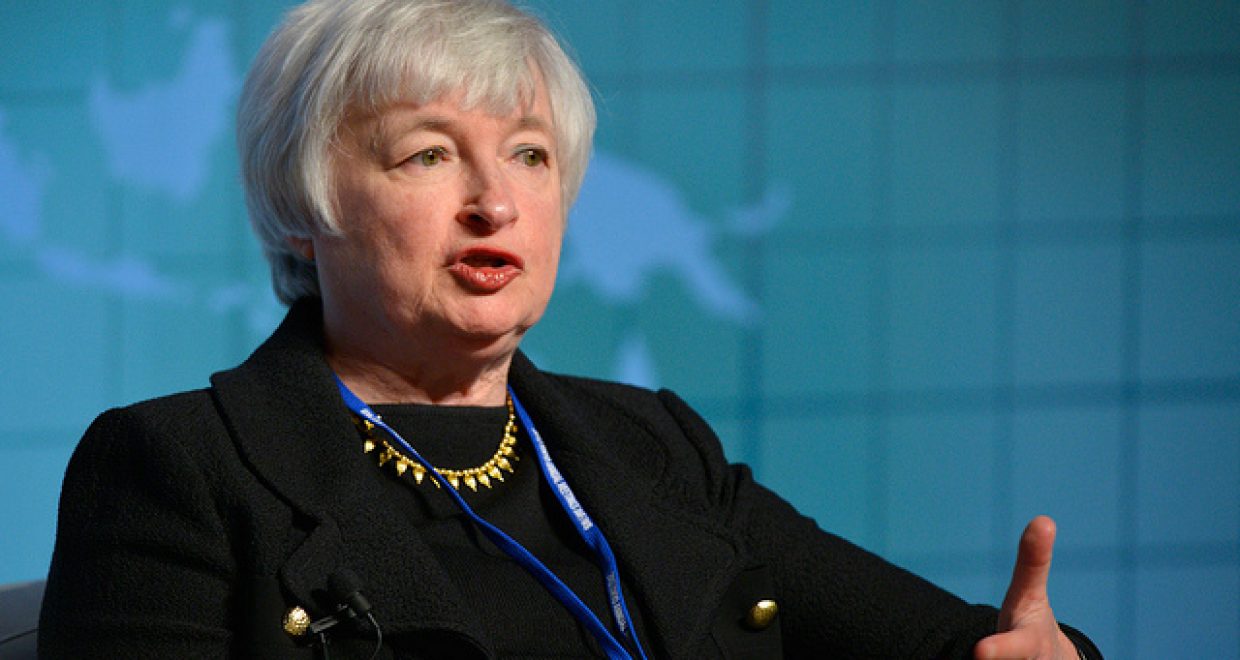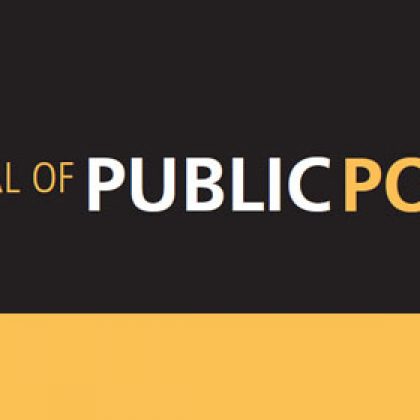Repost: Why we need better central bank accountability
Repost from the Ethics & International Affairs Blog
Written by Jacqueline Best, June 16, 2016
Photo: US Federal Reserve Chair Janet Yellen at a press conference in December, 2015. Photo credit: Day Donaldson
As pundits debate whether the US Federal Reserve will raise interest rates again this summer or fall, we are reminded of just how much of the economy’s direction hinges on central bankers’ decisions.
Since the 2008 financial crisis, the power of central banks has grown, as they have used unorthodox tools to stimulate the economy, taken a greater role in financial regulation, and put themselves in more politically sensitive positions, including the tough debt negotiations with Greece.
In spite of this powerful role, central bankers are remarkably insulated from democratic oversight. As a recent “Buttonwood” column notes in The Economist, “Janet Yellen and Mario Draghi are very important players in the world economy, arguably more important than the US President or the German chancellor. And yet they are not elected; if voters do not like the job they are doing, they cannot get rid of them.”
There is a great deal at stake in decisions about monetary policy, as I suggest in a recently published article in Ethics & International Affairs. Central banks not only define the broad direction of the economy but also create winners and losers. Consider, for instance, the disparate reactions of a prospective first-time home buyer and a retired couple living on their savings to the prospect of yet another drop (or increase) in the interest rate.
Central bank independence in its current form is relatively recent. Elected leaders exercised considerable influence over monetary policy in the post-war era, seeking to achieve the right “trade-off” between full employment and inflation. It was only in the 1980s that policymakers moved away from this kind of Keynesianism and embraced the ideas of Milton Friedman, who advocated the creation of an independent monetary authority.
Friedman and other economists believed that if governments were given any discretion over monetary policy they would adopt inflationary policies because these were more likely to be popular with the electorate. They argued that the only way to ensure price stability was to radically limit the government’s influence over monetary policy by making central banks autonomous and requiring them to stick to a simple rule, such as an inflation target. By the late 1990s, central banks in over thirty countries had gone down this path and were using some form of inflation targeting.
The current model of central bank governance does provide for a certain kind of accountability—but only a very narrow one. Ensuring accountability generally involves three elements: broadly-agreed upon standards, information on whether they are met, and sanctions if they are not. Because the principle of central bank independence involves a very limited set of standards—that is, the achievement of an inflation target—and very few opportunities for sanction, the main mechanism for accountability is provided by publishing information about the bank’s activities. Hence we have seen the rapid expansion of central banks’ commitment to providing more and better information about their models and decisions in recent years.
Unfortunately, while this informational form of accountability may have worked during the stable years of the “Great Moderation” (from the mid-1980s to the 2008 crisis), it is no longer up to the task in the volatile post-crisis era.
Bank of Canada Governor Stephen Poloz and US Federal Reserve Chair Janet Yellen have both suggested that growing economic uncertainty has reduced the effectiveness of simple models and rules. What these bank governors have not acknowledged (unsurprisingly) is the challenges that this growing uncertainty poses for existing forms of accountability.
If uncertainty limits the effectiveness of rule-based policy, then it ultimately requires greater discretion on the part of policymakers. This is not a problem in itself (here I would disagree with those Republican lawmakers who would bind the Fed even further with more stringent rules). More discretion does, however, require a more robust form of accountability.
There are three basic principles that should underpin any such reforms.






